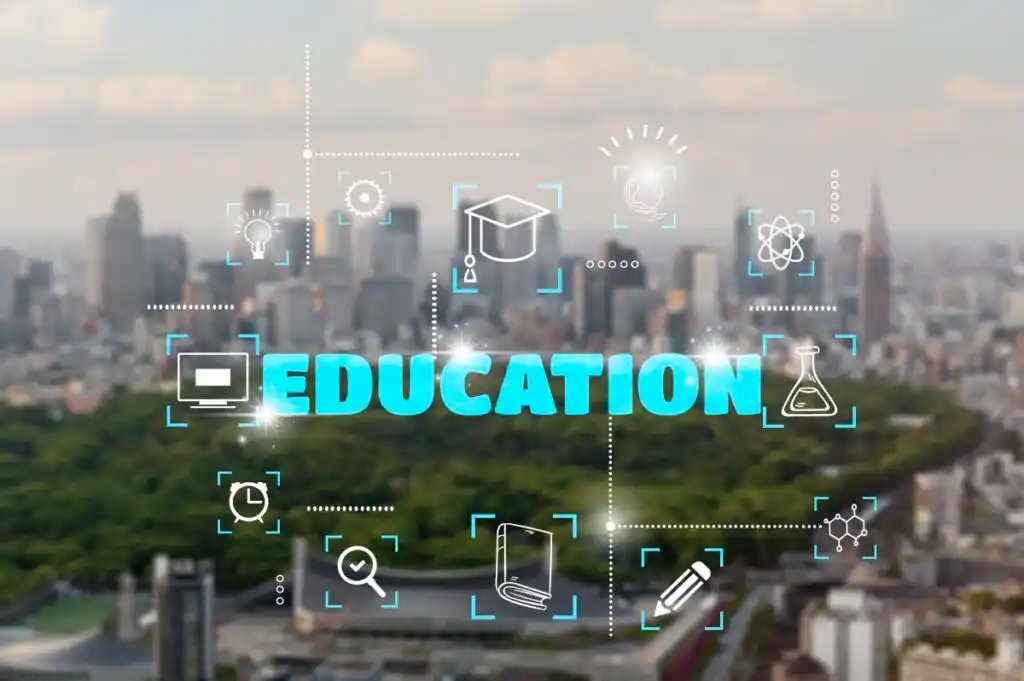The Education Blog

Government Initiatives Shaping the Future of Education
Education is a key tool for society. It helps promote equity, spark innovation, and drive prosperity. Education structures, systems, and strategies don’t change by themselves. They often depend on education policies shaped by national goals and social needs. In this context, government initiatives are key. They guide learning environments, teacher training, curriculum design, and access to technology.
As we progress in the 21st century, education systems face big challenges. These include tech disruption, inequality, globalisation, and mental health. So, we need strong policy responses. Governments worldwide are starting new programmes. They aim to update education, promote inclusivity, and prepare learners for future challenges.
This article looks at key education trends from government actions. It examines key policies and their effect on teaching, learning, and preparing for a world of uncertainties and opportunities.
Digital Transformation in Education
Bridging the Digital Divide
A key focus in global education policy is using digital tools and platforms. The COVID-19 pandemic exposed stark inequalities in access to online education. In response, many governments have since prioritised digital equity through initiatives such as:
- Device distribution programmes offer free laptops or tablets to students from low-income households.
- Subsidised internet access for rural or underserved communities
- National digital curriculum portals with open-access learning materials
Examples:
- The UK’s Oak National Academy began providing high-quality digital lessons in different subjects.
- India’s DIKSHA platform delivers e-content aligned with the national curriculum in several languages.
- South Korea’s Smart Education Strategy aims to give every student a smart device. It also offers cloud-based personalised learning.
These programmes aren’t just about hardware. They also show a wider commitment to education trends like blended learning and lifelong digital literacy.

2. Curriculum Reform and Skills for the Future
Prioritising 21st-Century Skills
Governments see that lessons should cover more than reading and maths. Modern learners require competencies such as critical thinking, collaboration, creativity, and digital fluency. Curriculum reforms are being introduced to match learning outcomes with future job needs.
Government Initiatives:
- Finland’s Phenomenon-Based Learning helps students look at real-world topics from many fields. This way, they build a well-rounded understanding.
- Singapore’s “SkillsFuture” programme gives citizens credits to take short courses. These courses focus on new areas like AI, sustainability, and cybersecurity.
These reforms show a change in education policy. They aim to prepare students for an unpredictable global economy. This means encouraging adaptability and fostering innovation from a young age.
3. Inclusion, Equity, and Access
Supporting Disadvantaged Learners
Achieving equal access is a persistent puzzle for policymakers. Governments are starting targeted initiatives. They’re working together to create solutions for a fairer society. In this society, everyone gets a fair chance.
Notable Programmes:
- The UK’s Pupil Premium gives extra money to schools with disadvantaged pupils. This funding helps support targeted interventions.
- South Africa’s National School Nutrition Programme helps with food insecurity. This problem affects how well students concentrate and perform.
- Brazil’s Bolsa Família programme gives cash to low-income families. This helps encourage their children to attend school.
Inclusion is also expanding to support neurodiverse learners. Many education trends now focus on universal design for learning (UDL). UDL aims to support different learning styles and needs in regular classrooms.

4. Teacher Development and Support
Investing in Educators
No education system can exceed the quality of its teachers. Many governments see this. So, they are making policies to improve the teaching profession. They want to modernise training and support ongoing professional development.
Examples:
- China’s “Excellent Teacher Programme” places skilled teachers in rural areas. It provides incentives and support to encourage them.
- Scotland’s National Improvement Framework includes strong teacher evaluations and ongoing professional development.
Supported teachers tend to be more innovative. They engage students better and adapt to today’s changing classroom needs.
5. Early Childhood Education and Care (ECEC)
Building Foundations for Lifelong Learning
Government investment in early years education is a strong equaliser. It offers long-term benefits for social mobility, cognitive growth, and economic productivity.
Policy Highlights:
- Canada’s new federal-provincial agreements plan to provide $10-a-day childcare. They also aim to increase access to early childhood learning settings.
- Japan’s “Comprehensive Support System for Children and Childcare” boosts teacher–child ratios. It also encourages early help for kids with developmental delays.
Policymakers are embedding equity and quality into ECEC. This sets the stage for better and more inclusive education for children in the system.
7. Education for Sustainability and Global Citizenship
Preparing for a Responsible Future
Students need environmental awareness, civic responsibility, and ethical reasoning to tackle global challenges. Governments are weaving these themes into the fabric of educational policy.
Examples:
- Italy was the first country to mandate climate change education for every grade.
- Costa Rica’s “Environmental Education Policy” integrates sustainability across core subjects.
- UNESCO’s Global Citizenship Education (GCED) is now in more than 70 countries. It promotes human rights, diversity, and caring for the environment.
This shows an important education trend. It prepares learners to be future workers, planet caretakers, and engaged global citizens.

Challenges and the Road Ahead
1. Policy Implementation Gaps
Policies may look grand on paper, yet reality often tells another tale. Progress can sometimes stumble, causing intentions to get lost in the mix.
2. Equity in Innovation
As governments embrace digital learning, they must ensure that marginalised communities are included. Technology alone doesn’t guarantee transformation.
3. Balancing Standardisation and Autonomy
Balancing national standards with local flexibility is a constant challenge in education policy.
4. Monitoring and Accountability
For government initiatives to succeed, clear plans for evaluation and feedback are key. Changes must also be part of the plan.
Policy as a Catalyst for Educational Progress
Government initiatives are changing education fast. They focus on digital infrastructure, curriculum reform, teacher empowerment, and mental health support. While there are challenges, these actions reflect a better understanding of 21st-century education. It should be inclusive, dynamic, globally aware, and learner-focused.
Good education policy doesn’t just follow trends. It also considers what future generations will need. By focusing on equity, evidence, and innovation, we can build bridges. We’ll unleash potential and transform societies, one idea at a time.
Time is of the essence! Are you an educator, policymaker, or a concerned citizen? Think about this: how can your voice spark positive change?









